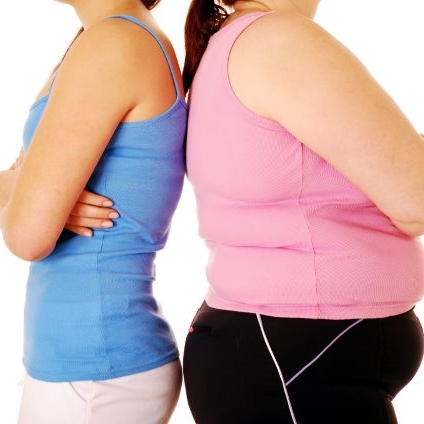click to dowload our latest edition
CLICK HERE TO SUBSCRIBE TO OUR NEWSLETTER


Published
7 years agoon
By
adminELIANA CLINE
Yet, despite the developed world’s obsession with weight and health, our world has never been less healthy. Obesity rates have skyrocketed and along with it, lifestyle associated diseases such as diabetes, heart disease, and high blood pressure.
More alarming is the ramifications of this image and weight-obsessed society on both a psychological and physical level. The price of this diet culture is dangerously high: Eating disorders and disordered eating are becoming more prevalent. Negative body image is damaging the self-esteem and long-term health of many – particularly teenagers and young women.
Justine Friedman, a Johannesburg based registered dietician, says she sees many women and girls who are constantly comparing themselves to the images portrayed in the media and feeling inferior as a result.
“Girls and women end up obsessing over food choices and so many areas of their appearance which can lead to disordered eating and eating disorders,” she says. “Not only does this cause depression and anxiety, but it can lead to using over-the-counter ‘natural’ products advertised as appetite suppressants.
“Using these products, or having injections or diet meal replacement drinks, can have a huge impact on a host of long-term health problems that lead to thyroid problems, insulin resistance, elevated blood pressure and sleeplessness, which in turn elevates the bodies’ stress response, which ultimately causes weight gain.”
Fortunately, there is a promising movement named “Body Positivity” which is gaining momentum globally. The term was coined in 1996 and as more people realise the limitations and risks of the widespread diet culture, the movement is spreading into many areas. Its philosophy is being adopted by individuals, dieticians, mental health workers and educators, as a vehicle to attain authentic holistic health.
This movement promotes the belief that the body is one aspect of a person’s being; and that each is unique and worthy no matter how it looks. Everyone’s body is different; with different genes, tendencies and composition.
It focuses on accepting the body you have, as well as the changes in shape, size, and ability it may undergo due to nature, age, or your own personal choices throughout your lifetime. It’s the understanding that your worth and what’s going on with you physically are two separate entities – that no matter what’s happening inside, outside, or to your body, you’re still just as worthwhile as the person next to you.
Body Positivity does not stop at self-acceptance. Once a person has a positive relationship with their body, a Body Positive person can then make choices of how to nurture and nourish one’s body.
It entails understanding what your body does, what makes your body feel good, how it does it and how to make choices which serve your life goals – physical, emotional, and spiritual. The primary mind-set is that you can live comfortably in your body, as it is right now, or work on treating it right through nourishment and joyful movement and self-care without punishing yourself for looking the way you do.
“For many people, having a positive body image is challenging as so much emotion is caught up in this area of our lives. So often we feel that if we look or feel a certain way, only then will we be happy with who we are and what we look like,” says Friedman.
“Being Body Positive goes above this and is learning to love yourself and your physical body exactly as it is first, and then taking steps to nurture and nourish your body to improve its functioning and to assist with improved energy levels, decreased disease and to enable one to live with increasing vitality.”
For parents of both genders, consciously fostering body positivity is crucial to raising emotionally and physically healthy adults. It means that parents have to first and foremost accept that their child’s body is unique and may or may not turn out in line with societal and personal expectations.
Parents need to provide a healthy role-model to counteract the negative views our children are flooded with on a daily basis; from peers and social media and family members. Girls and teenagers are especially vulnerable to poor body image, which can lead to low self-esteem, disordered eating and eating disorders.
“The best example one can set as a parent is developing our own sense of feeling Body Positive,” says Friedman. “Children and teens pick up on our actions and words that we use to speak about ourselves and how we look at ourselves or how we dress.
“If we are constantly saying how fat we feel or how terrible we look, a child or teen will model their own behaviour on this and will integrate the terminology we use and behaviours we display.
The same applies to our criticism of others as well as of our children. If they are exposed to our negative opinions about others based on how they look or on their weight, it will also add to a concept for them that only desirable looks are guarantees of praise and love,” says Friedman.
“If children or teens feel inadequate about their own body image, it is important to build their self-esteem by helping them focus on their own individual strengths and helping to find their own self-worth outside of how they look. Building a positive self-esteem is critical for every person and it comes from valuing what we see as unique and special about ourselves.
“It is imperative that if a child or teen is feeling uncomfortable with their body, that they are guided to see someone who will focus on their positive attributes and at the same time help to guide them with making mindful lifestyle choices,” says Friedman.
